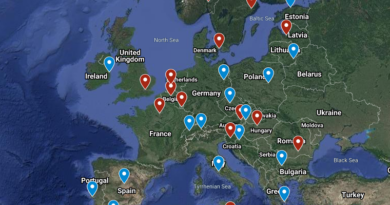German cabinet approves dual nationality exception for Brexit transition
The German cabinet approved today a bill that should allow Brits and Germans who apply for citizenship of the other country during the Brexit transition to retain both passports.
Under current regulations, people obtaining German citizenship or German citizens taking up another passport have to renounce their previous nationality, unless they are from a member state of the European Union or from Switzerland.
British nationals will no longer be considered EU citizens after Brexit day, 29 March 2019. But the bill says that the German government will continue to regard them as EU nationals during the Brexit transition. This means that Brits and Germans who meet the requirements will be able to naturalise in the other country and keep both passports, as long as the application is made before the end of the transition period (even if the decision on their naturalisation is made afterwards).
According to the draft withdrawal agreement, the transition period will last from 30 March 2019 to 31 December 2020. The bill proposed by the German Foreign Ministry aims to ensure legal certainty for businesses and citizens following the UK withdrawal from the European Union. It is founded on the single rule that wherever federal law refers to EU countries during the transition, the UK is included.
The act must now be approved by the German Bundestag with the consent of the Bundesrat. It should be enforced from the day the withdrawal agreement will come into effect, presumably 30 March 2019. But its provisions will not be applied in case of a no-deal Brexit.
During the consultation about the bill, British in Germany, a group defending citizens’ rights in Brexit negotiations, warned about the impacts of a UK withdrawal without agreement.
Citizens’ rights groups also recently wrote to Brexit negotiators asking them to secure the status of EU nationals in the UK and British residents in the EU, regardless of the outcomes of Brexit talks.
While Germany allows dual nationality for EU citizens, Austria, Estonia, Lithuania, the Netherlands and Slovakia are among EU countries that do not permit or limit the chances of obtaining dual citizenship.
Claudia Delpero © all rights reserved.
Photo: Berlin, via Pixabay.





